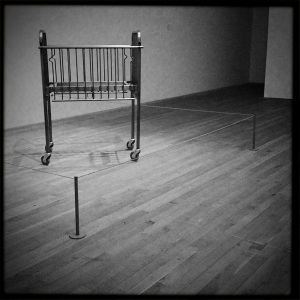 At some point, in my attempt to understand the world and all that it entails, I turned to philosophy and discovered the great Theodor W. Adorno. Belonging to the Frankfurt School of thought, he (and Max Horkheimer) was responsible for the Dialectic of Enlightenment, and I consider him to be a true visionary. In my opinion, his 20th century social criticism can be easily applied to the 21st century, no matter how different things are today.
At some point, in my attempt to understand the world and all that it entails, I turned to philosophy and discovered the great Theodor W. Adorno. Belonging to the Frankfurt School of thought, he (and Max Horkheimer) was responsible for the Dialectic of Enlightenment, and I consider him to be a true visionary. In my opinion, his 20th century social criticism can be easily applied to the 21st century, no matter how different things are today.
As an homage to him, I have tried to do something a little bit different. I took some of Adorno’s random quotes and stitched them together to build up my own cluster of collective thoughts. The only writing in the piece that is mine are those words that bind the quotes to make them a sentence (and to ultimately make sense) and the punctuation. Each quote is clearly marked with quotations, so anyone that’s interested can see where Adorno’s thoughts begin and end.
“In the age of the individual’s liquidation, the question of individuality must be raised anew” where “lies are told only to convey to someone that one has no need either of him or his good opinion”. “Life has become the ideology of its own absence” and it can be said that “love is the power to see similarity in the dissimilar”. “Modernity is a qualitative, not a chronological, category” where “the human is indissolubly linked with imitation: a human being only becomes human at all by imitating other human beings”. This idea leads us to think that “not only is the self entwined in society; it owes society its existence in the most literal sense” thus there can be “no emancipation without that of society”.
“The individual mirrors in his individuation the preordained social laws of exploitation, however mediated”, “because thought has by now been perverted into the solving of assigned problems, even what is not assigned is processed like a problem”. “Today, self-consciousness no longer means anything but reflection on the ego as embarrassment, as realization of impotence: knowing that one is nothing” and “true thoughts are those alone which do not understand themselves”.
“The task of art today is to bring chaos into order”, during a time where “happiness is obsolete: uneconomic” and “art is permitted to survive only if it renounces the right to be different, and integrates itself into the omnipotent realm of the profane”. But is it true that “quality is decided by the depth at which the work incorporates the alternatives within itself” ?
Finally, “the almost insoluble task is to let neither the power of others, nor our own powerlessness, stupefy us” and to accept that “in the abstract conception of universal wrong, all concrete responsibility vanishes”. “In the end, glorification of splendid underdogs is nothing other than glorification of the splendid system that makes them so”.
You can find all the quotes on various quote sites and the Dialectic of Enlightenment on Amazon.co.uk
